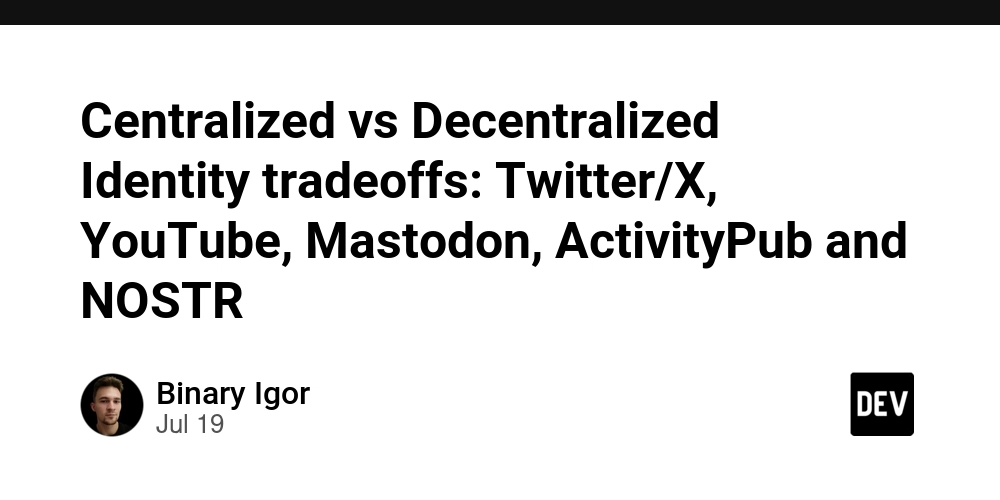Centralized vs Decentralized Identity tradeoffs: Twitter/X, YouTube, Mastodon, ActivityPub and NOSTR
Social media and various other online platforms require some sort of identity to provide their services and to customize experience to us. What does it mean exactly and how does it work in practice?
Currently most, if not all, of these platforms – Twitter/X, YouTube, Reddit, LinkedIn, Facebook, Instagram, GitHub, Amazon, Spotify and the like – are account-based. We sign up to create an account that is then stored on the service servers and controlled by it. Each time we want to use the service, we sign in with the previously configured credentials and if everything is correct – we are granted access to the service. To control claimed identity, we must prove to the service owner that we are who we say we are.
This is the prevailing identity model that is used by most digital services and networks – Centralized. But, there are other possibilities as well:
- Federated
- Decentralized
- Delegated
each of them coming with a different set of Incentives and Tradeoffs.
We are about to examine all of them, pondering the following questions:
- Why do we rarely see and use anything different than the centralized model?
- What problems do they solve?
- What problems do they cause?
- What use cases do they fit the most?
- Is any of them always better, or it depends (on what)?
- And finally – does the currently dominant identity model must be fixed, or it serves us well and nothing needs to be done?
If you’re curious, the post continues on: https://binaryigor.com/centralized-vs-decentralized-identity-tradeoffs.html

